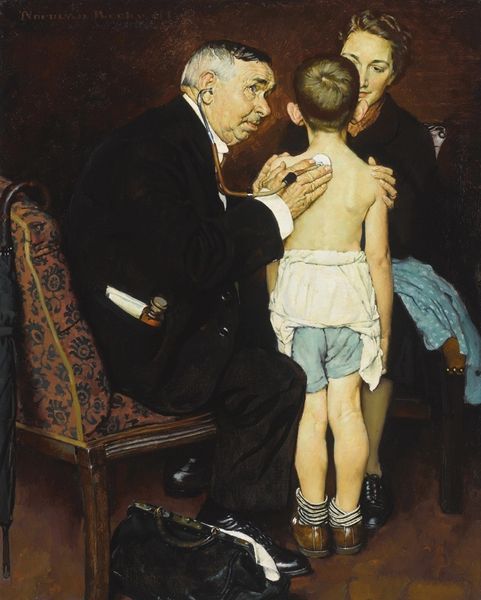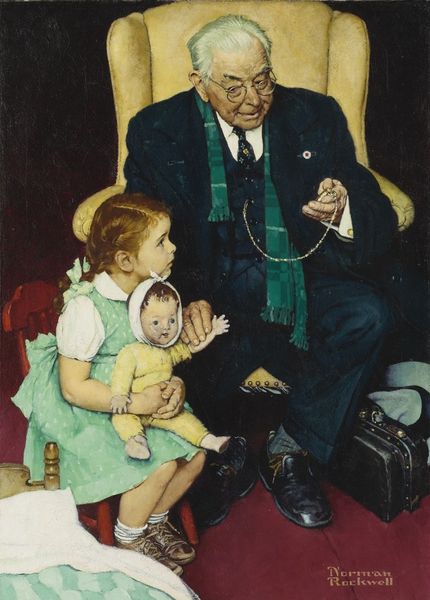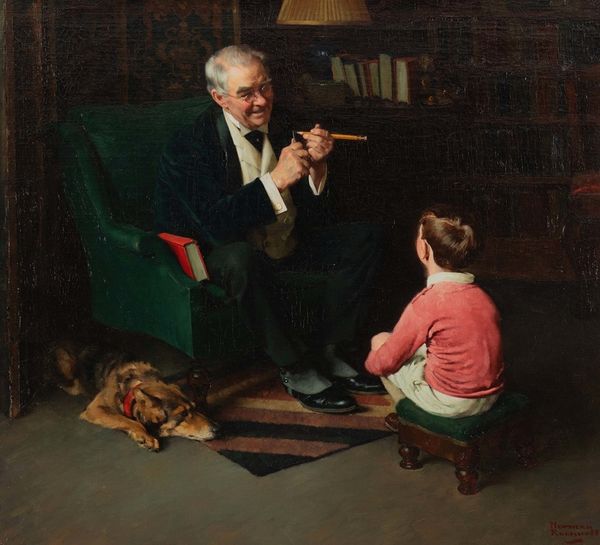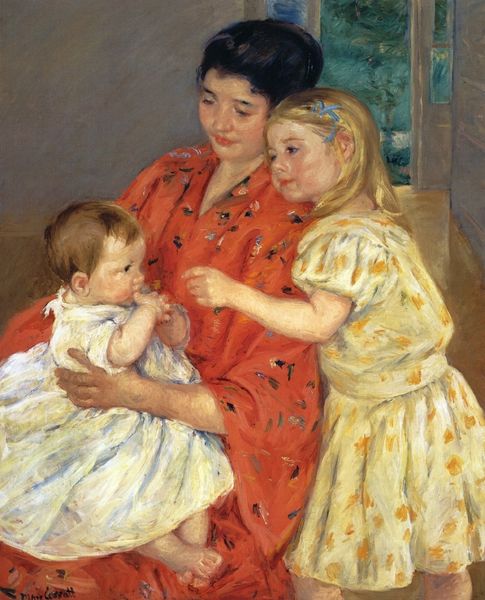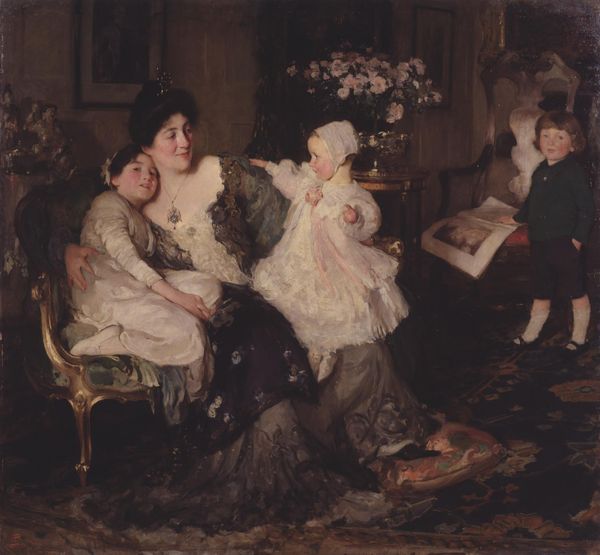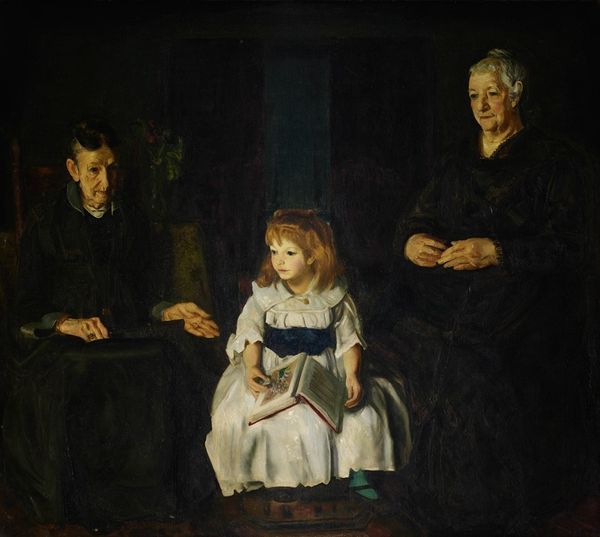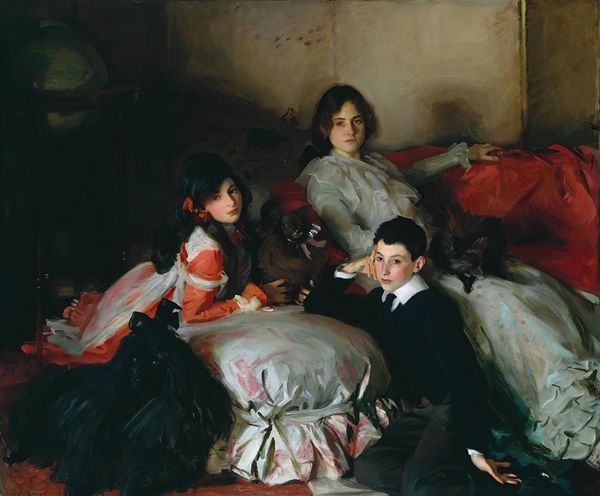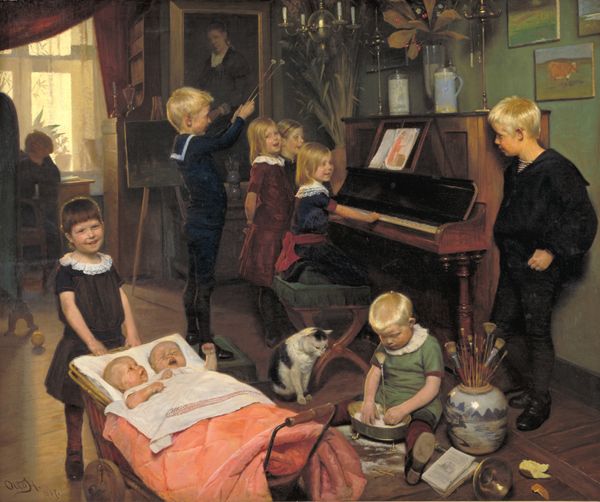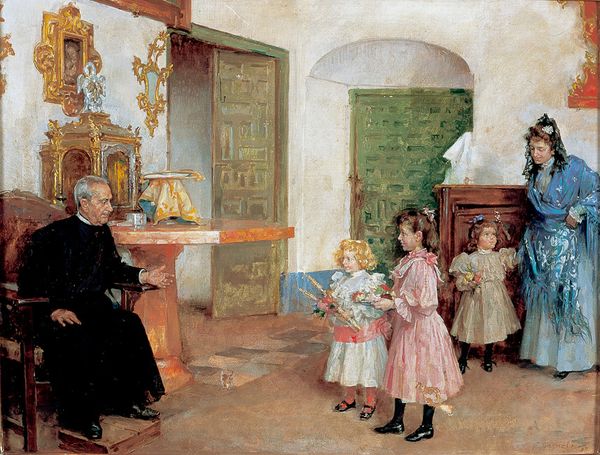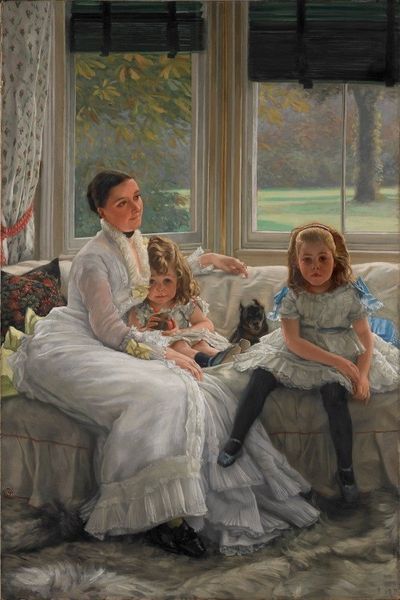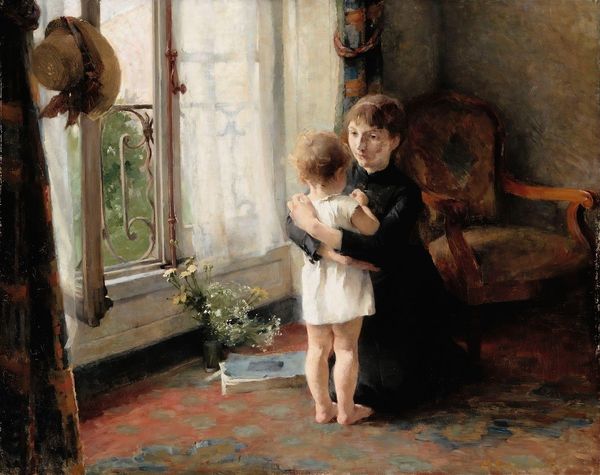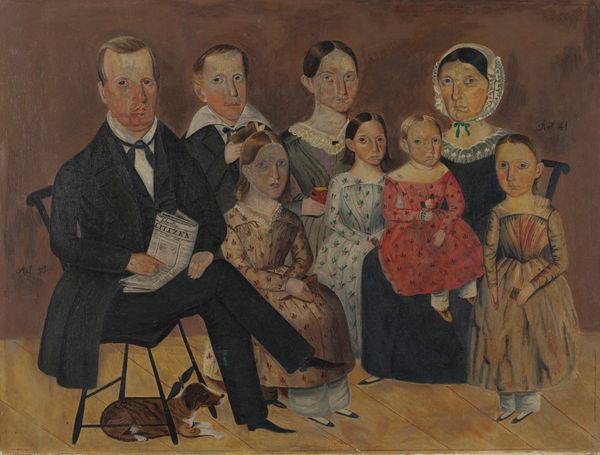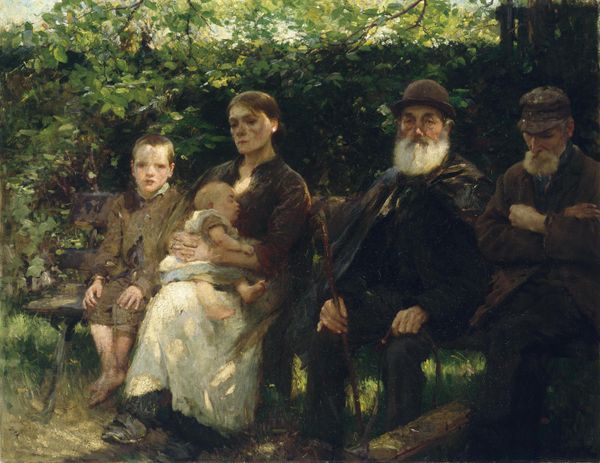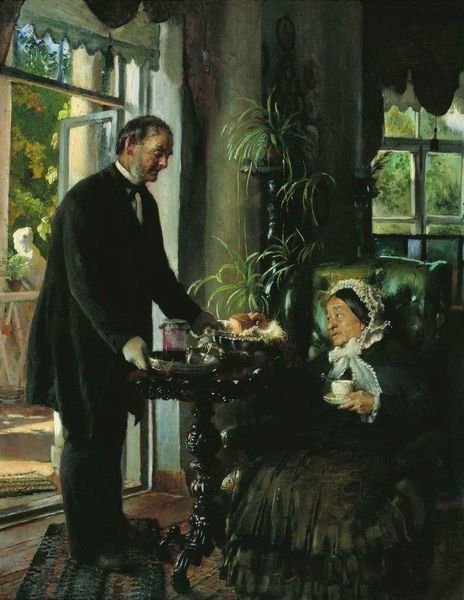
painting, oil-paint
#
portrait
#
narrative-art
#
painting
#
oil-paint
#
oil painting
#
genre-painting
#
academic-art
#
portrait art
#
modernism
#
realism
Copyright: Modern Artists: Artvee
Editor: Norman Rockwell’s painting, "When the Doctor Treats Your Child," created in 1939, captures a poignant moment. He used oil paints with stunning precision to offer a scene charged with childhood anxiety. What details capture your attention, and how do you interpret this intimate portrayal of care and worry? Curator: It's remarkable, isn’t it? This snapshot of Americana. Rockwell had a knack for freezing those fleeting, universally relatable moments. But I'm always drawn to the doctor's eyes—tired, yet filled with a quiet empathy. Have you noticed how the light gently illuminates his face, suggesting wisdom but also weariness? Almost like he's absorbing the family's anxiety. But the medicine bag—a symbol. Old-fashioned maybe, but suggesting continuity and healing. It's as though he is saying, I've seen it all before, and we will get through this, won’t we? Editor: I see that. The bag's presence anchors the scene. It adds a tangible element, suggesting the practical aspect of medicine amidst the family's concern. Curator: Exactly. It also suggests to me the trust that families like this put in their doctors. Tell me, does it strike you as sentimental, or something more complex? Editor: Maybe both. It is sentimental, but Rockwell also highlights the doctor's burden and the universal worry of parenthood, giving it a deeper resonance. Curator: A-ha. See, there's always more than meets the eye. That’s why I adore art. It can contain contradictions and challenge our instant judgment calls. Rockwell, bless him, made a career out of those nuances. Editor: I agree, seeing the contrasting emotional states – the children's worry, the mother’s watchfulness, the doctor’s care, that makes it deeply relatable, even today. Curator: Indeed, it whispers timeless truths. Rockwell, I feel, managed to trap lightning in a bottle – the human condition in a single, illuminated moment. And those moments, my friend, are eternal.
Comments
No comments
Be the first to comment and join the conversation on the ultimate creative platform.
